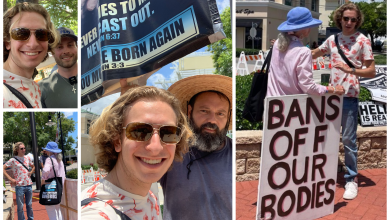Counter Take: “When is a Fetus a Person?”

While it may be easy for us to confer personhood to the child within a mother’s womb, the left will often refuse to understand this concept and identify it as a non-living mass.
In this situation, we have to figure out WHEN such a person declares a fetus a person. At what point does the mass become a human life worth sparing? What factors or situations must be present to confer this personhood? This is the easiest way to dissect their understandings and show how misguided they truly are.
Most pro-choice arguments in this regard will reference four particular factors:
- Size
- Level of development
- Environment
- Degree of dependency
A good way to remember these is with the acronym SLED.
Here are a few common examples with refutations:
“A fetus is not a person because they cannot survive on their own.”
– A newborn cannot survive on its own either, as well as people using life support or oxygen. Is their life worth less than yours?
“A fetus is not a person because they have not experienced anything yet.”
– Science shows that a fetus can actively respond to stimuli outside the womb and can even recognize their mother’s voice. Moreover, most people do not remember anything from before the age of 3 or 4. Are we allowed to kill children at that point?
“A fetus is not a person because they are still inside the womb and have not taken their first breath.”
– So a 9 month old fetus that is ready to be born could be killed right before delivery?
Dissecting the pro-choice views on when personhood is conferred will only leave you with one thing: the only reliable and tenable position on when a fetus becomes a person is at conception, when a unique sequence of DNA is created and the development of a child begins.



